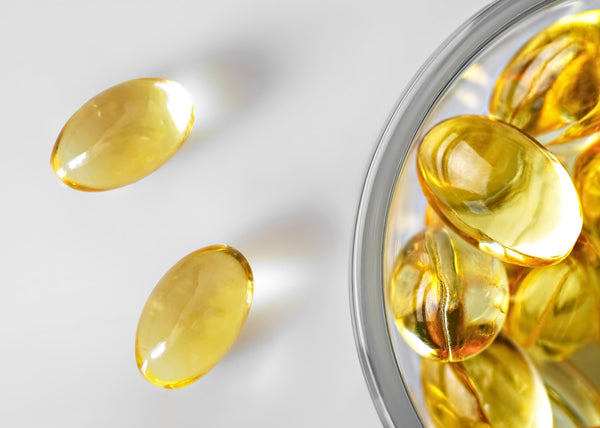In This Article
Shatavari, also known as Asparagus racemosus, is a versatile herb that has been utilized for centuries in traditional medicine. With a long history of use, Shatavari has gained recognition for its potential health benefits, particularly for women's health, digestive health, and immune system support. However, like any herb or supplement, it is important to consider precautions and potential side effects before incorporating Shatavari into your wellness routine.
Understanding Shatavari
Shatavari, derived from the Sanskrit word "Shatavar," meaning "a hundred roots," is a species of asparagus plant native to India and the Himalayas. It has been traditionally used in Ayurvedic medicine for its rejuvenating and nourishing properties, particularly concerning female reproductive health.
Origins and History of Shatavari
Shatavari has a rich history that dates back thousands of years. In ancient Ayurvedic texts, it is referred to as a powerful herb for promoting fertility and enhancing female vitality. Over the centuries, shatavari has remained a cornerstone of Ayurvedic medicine, used to address a wide range of health concerns associated with women's reproductive system, digestion, and overall well-being.
Shatavari in Traditional Medicine
In Ayurveda, shatavari is considered a "rasayana," or rejuvenating herb, known for its ability to support overall vitality and longevity. It is classified as a cooling herb, making it well-suited for pacifying excess heat and inflammation in the body.
Menopause: Traditionally, Shatavari has been used to support women's health during various life stages, from puberty to menopause. It balances female hormonal levels, alleviates menstrual discomfort, and promotes reproductive wellness.
Digestion & Immunity: Beyond women's health, Shatavari has also been valued for its potential to support digestive health. It is known to soothe the digestive system, relieve acidity, and promote optimal nutrient absorption. Additionally, Shatavari is believed to possess immune-boosting properties, making it a favored herb during times of low immunity or convalescence.
Stress: Shatavari is believed to have adaptogenic properties, helping the body adapt to physical and emotional stressors. This makes it a valuable herb for those seeking a natural way to prevent anxiety and depression.
Food: Shatavari is not only revered for its medicinal properties but also for its culinary uses. The tender shoots of the Shatavari plant are often used in traditional Indian cuisine, adding a unique flavor and texture to various dishes.
Hence, renowned for its versatile benefits, Shatavari has been in use for several centuries, especially for women's health.
The Health Benefits of Shatavari
Nutritional Profile of Shatavari
Shatavari is packed with vital phytonutrients, including essential amino acids, vitamins, and minerals. It is a rich source of fiber, calcium, magnesium, zinc, and iron. These nutrients work synergistically to support various bodily functions and promote overall well-being.
Shatavari and Women's Health
Shatavari is celebrated for its beneficial effects on women's health. It is believed to balance female hormonal levels, which can help alleviate menstrual discomfort, regulate irregular periods, and support hormonal changes during menopause or PCOS. Additionally, Shatavari is thought to enhance fertility and support a healthy pregnancy.
Shatavari and Digestive Health
Shatavari's soothing and cooling qualities make it an excellent herb for supporting digestive health. It is known to alleviate conditions such as acidity, indigestion, and inflammation in the digestive tract. Shatavari can also help strengthen the digestive fire, or "Agni," and improve nutrient absorption, which is crucial for overall health and vitality.
Additionally, Shatavari has been used to promote healthy bowel movements and relieve constipation. Its mild laxative properties gently stimulate the bowels, aiding in regular elimination and detoxification.
Shatavari and Immune System Support
Shatavari's immune-boosting properties are attributed to its ability to stimulate the body's innate defense system, helping to ward off infectious pathogens and strengthen overall immune function.
By supporting the immune system, Shatavari may help reduce the frequency and severity of common illnesses, making it a valuable addition to one's wellness routine, particularly during times of increased vulnerability.
Shatavari for Respiratory Health
Shatavari has been used in traditional medicine for centuries to support respiratory health. Its expectorant properties help to loosen mucus and phlegm, making it easier to expel and providing relief from respiratory congestion. Shatavari's anti-inflammatory properties also contribute to its effectiveness in soothing respiratory conditions such as coughs, bronchitis, and asthma.
Shatavari and Skin
Shatavari is known for its positive effects on the skin. Its antioxidant properties help protect the skin from free radical damage, reducing the signs of aging and promoting a youthful complexion. Shatavari is also believed to improve skin hydration and elasticity, making it a popular ingredient in skincare products.
Shatavari for Sexual Health
In addition to its numerous health benefits, shatavari has a long history of traditional use as an aphrodisiac. It is believed to enhance libido, improve sexual performance, and support reproductive health in both men and women. Shatavari's ability to balance hormones and reduce stress may contribute to its positive effects on sexual well-being.
Precautions and Potential Side Effects of Shatavari
Who Should Avoid Shatavari?
While shatavari is generally considered safe for most individuals, certain groups should exercise caution or avoid its use. Pregnant women, individuals with estrogen-sensitive conditions, and those with a history of kidney stones or dehydration should consult with a healthcare professional before incorporating shatavari into their regimen.
Furthermore, individuals who are allergic to asparagus should be wary of shatavari, as it belongs to the asparagus family and may trigger similar allergic reactions in susceptible individuals. It is always recommended to perform a patch test before using Shatavari topically to rule out any potential skin sensitivities.
Possible Interactions with Medications
Shatavari may interact with certain medications, such as anticoagulants or antiplatelet drugs. It is advisable to consult with a healthcare provider if you are taking any medications to avoid potential drug interactions.
Additionally, individuals undergoing hormone therapy or treatment for hormonal imbalances should exercise caution when using Shatavari, as it may influence hormone levels in the body.
Dosage and How to Use Shatavari Safely
It is recommended to start with a low dose and gradually increase as tolerated. When incorporating shatavari into your routine, it is important to source the herb from reputable suppliers to ensure quality and potency.
Look for brands with high bioavailability and third-party testing to verify the authenticity of the product. Proper storage in a cool, dry place away from direct sunlight is also crucial to maintain the integrity of shatavari supplements.
Shatavari is available in various forms, including supplements, capsules, powders, teas, and tinctures. It can be consumed orally, added to beverages or smoothies, or used topically in certain preparations.
Conclusion
Shatavari, a revered herb with centuries of traditional use, offers promising therapeutic potential for women's health, digestion, and immune support. With minimal side effects and a holistic approach to wellness, it presents a natural option for those seeking alternative health solutions. However, it's essential to consult healthcare professionals before incorporating it into your regimen. Shatavari stands as a versatile and valuable herb for those embracing natural paths to vitality.




























